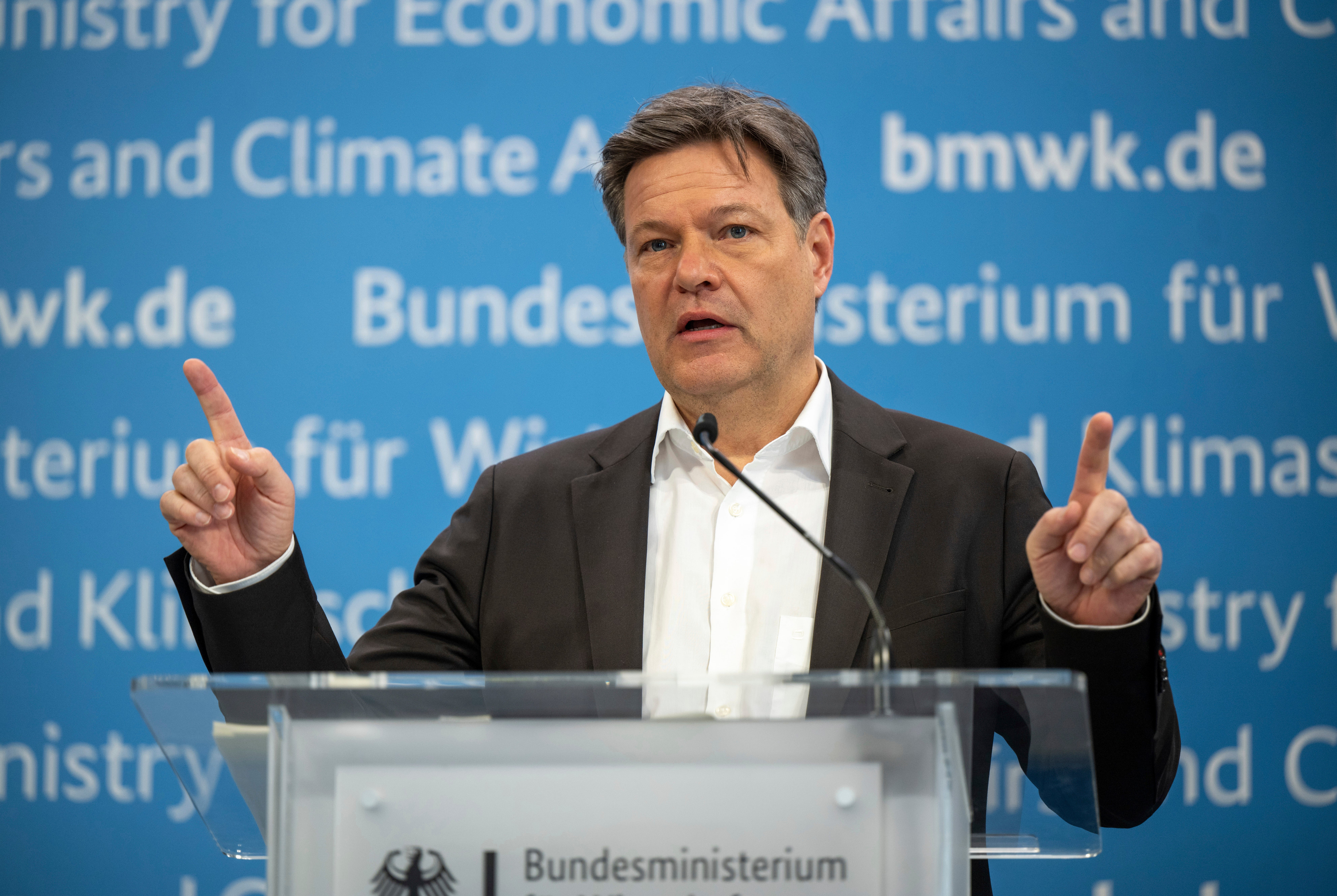Germany plans to enable underground storage of carbon dioxide at offshore sites
Germany's vice chancellor says the country plans to enable underground carbon storage at offshore sites, pushing ahead with a much-discussed technology in an acknowledgement that time is running out to combat climate change

Your support helps us to tell the story
From reproductive rights to climate change to Big Tech, The Independent is on the ground when the story is developing. Whether it's investigating the financials of Elon Musk's pro-Trump PAC or producing our latest documentary, 'The A Word', which shines a light on the American women fighting for reproductive rights, we know how important it is to parse out the facts from the messaging.
At such a critical moment in US history, we need reporters on the ground. Your donation allows us to keep sending journalists to speak to both sides of the story.
The Independent is trusted by Americans across the entire political spectrum. And unlike many other quality news outlets, we choose not to lock Americans out of our reporting and analysis with paywalls. We believe quality journalism should be available to everyone, paid for by those who can afford it.
Your support makes all the difference.Germany plans to enable underground carbon storage at offshore sites, pushing ahead with a much-discussed technology in an acknowledgement that time is running out to combat climate change, the country's vice chancellor said Monday.
Europe's biggest economy is making good progress with expanding renewable energy sources and usage, but a solution is needed for the carbon dioxide emitted by some sectors such as the cement industry that are “hard to abate,” said Robert Habeck, who is also the economy and climate minister.
Germany, which is home to many energy-intensive industries, aims to cut its emissions to “net zero” by 2045.
Habeck's proposed “carbon management strategy,” which still needs to be turned into detailed legislation, foresees enabling the transport of carbon dioxide and its storage under the sea in Germany's exclusive economic zone, except in marine conservation areas. It doesn't foresee allowing storage sites on land, but Habeck said that could be considered later if German state governments approve.
Opponents maintain that so-called carbon capture and storage is unproven at scale and has been less effective than alternatives such as solar and wind at decarbonizing the energy sector.
Habeck, a member of the environmentalist Green party, recalled opposition to carbon storage when it was discussed in the 2000s. But he said “the technology has been developed further ... and from my point of view it is mature and safe," and that it is now being used elsewhere, not just in research projects.
Neighboring Denmark last year launched an ambitious project that aims to bury vast amounts of carbon dioxide beneath the North Sea.
“Time has run out,” Habeck said at a news conference in Berlin. “In the 2000s, you could perhaps say, ‘let’s wait and see what might happen'; today we see that we haven't found any technological solution for cement and other areas that ensures climate neutrality.”
“We are heading toward exceeding 1.5 degrees, which means that we are no longer in a luxury or comfort zone where we can somehow wait,” Habeck added. “We have to use what we have.”
He was referencing the international goal of trying to limit future warming to 1.5 degrees Celsius (2.7 degrees Fahrenheit) since pre-industrial times.
Stopping warming at 1.5 C or so can avoid or at least lessen some of the most catastrophic future climate change harms and for some people is a life-or-death matter, scientists have found in many reports.
Habeck said it will be “a few years” before Germany can store CO2 under the sea, and that it would be wise to coordinate European initiatives. As well as the Danish project, he pointed to Norway, the Netherlands and the United Kingdom.
Environmental group Greenpeace complained that the German plans “bear the mark of the energy industry and heavy industry” and would allow even industries for which there are “climate-friendly solutions” to carry on as they have to date.
“That is expensive, not sustainable and encumbers future generations with further long-term liabilities,” Karsten Smid, an energy expert with the group's German branch, said in a statement.
___
Read more of AP’s climate coverage at http://www.apnews.com/climate-and-environment